How to format USB with CMD simply and quickly
Are you trying to Format USB using CMD because you cannot execute the Format command directly in computer memory management? Don't worry, TipsMake shares with you how to Format USB using CMD super fast and super simple.
1. Note before formatting the USB
Before formatting any USB data or hard drive, you need to pay attention to the following issues to avoid unfortunate situations:
- Data in USB after being formatted cannot be restored.
For important documents on USB, you should backup and check carefully before formatting. Once the USB is formatted, all data inside will be deleted and recovery is extremely difficult, if not impossible.
- Ensure a stable connection
During the USB Format process, you must ensure stable connection and power source. Otherwise, you will encounter an error halfway through and it will be difficult to restore to default.
2. How to Format USB using CMD (Command Prompt)
On computers, we have many different format methods. However, Format USB using CMD is still considered the most effective because it can be used even if your computer has an operating system error.
Step 1 : Open Start , enter CMD and select Command Prompt to open.
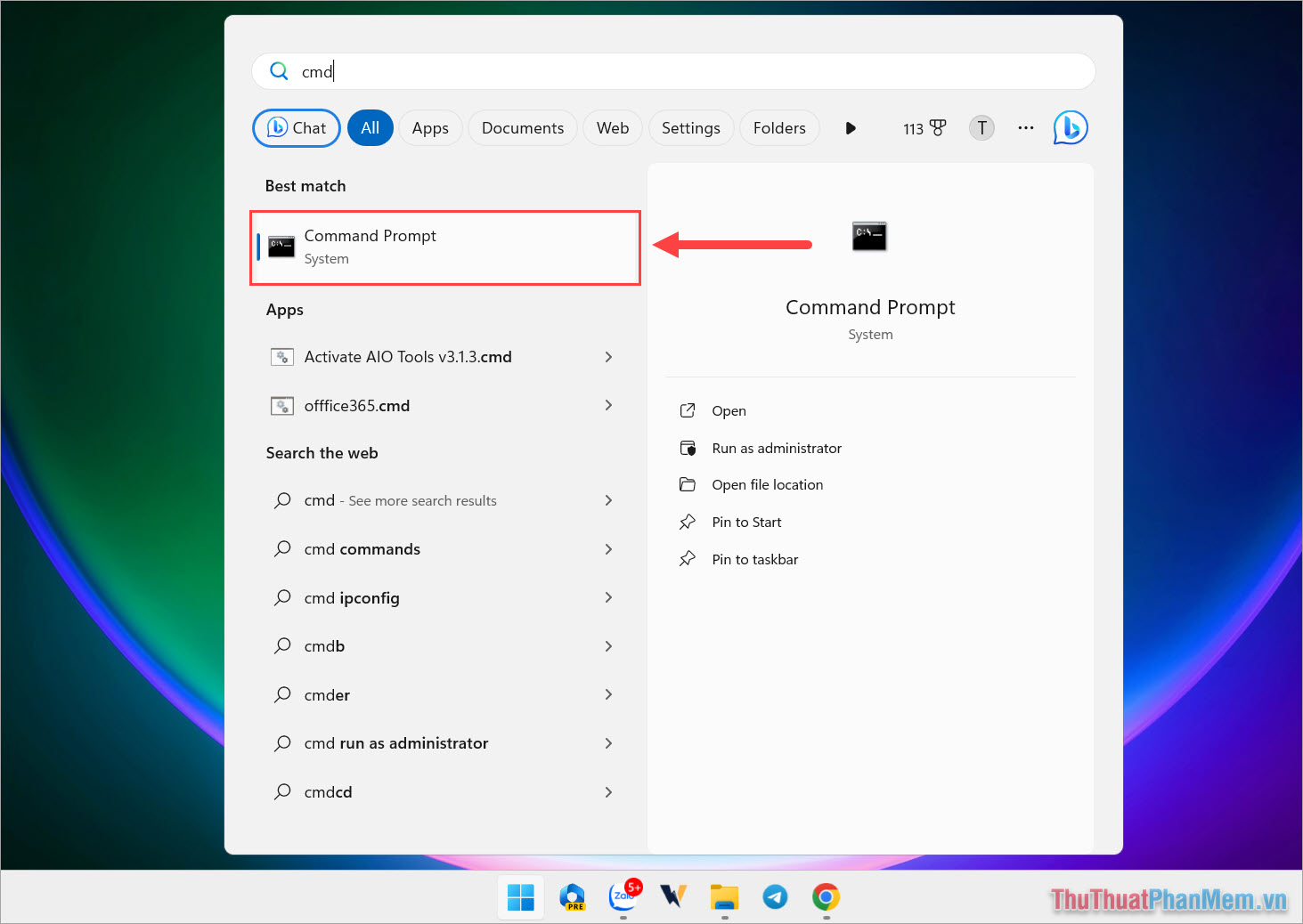
Step 2 : Then, enter the command diskpart and press Enter to open the drive manager on your computer.

Step 3 : Next, enter the List Disk command and press Enter to see the list of drives on your computer.
The List Disk command will tell you the entire list of connected drives on the computer, information includes: Drive number, Status, Drive capacity (Size), format. drive format….
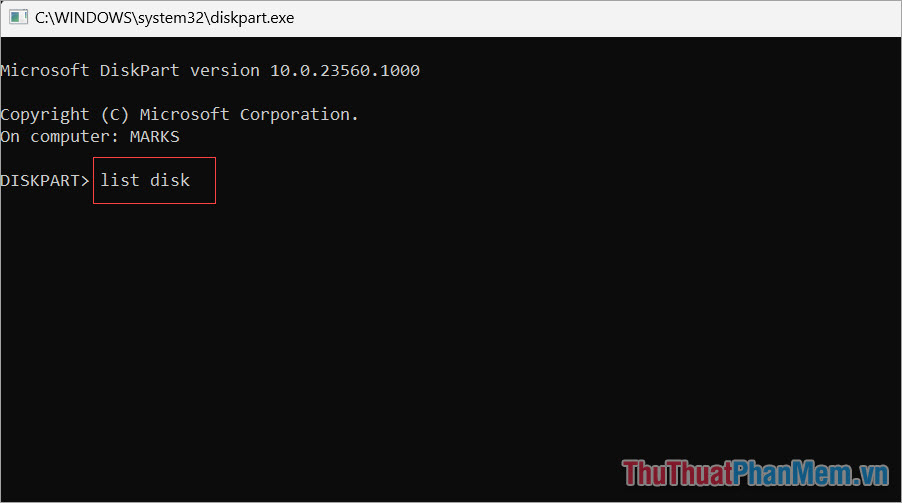
Step 4 : After executing the List Disk command, you will see a list of your drives on your computer. Your job now is to confirm what position your USB is in and what its name is. To correctly identify each drive, you can rely on the Total Capacity (Size).
Tip : If you cannot identify the USB name, remove the USB from the computer and perform List Disk to check the available drives on the computer. Then, connect the USB back to the computer and execute the List Disk command again to see which new drive appears. The new drive that appears is the USB drive name.
After determining the drive letter, execute the following command :
| Select ' Drive letter ' → Enter |
For example : In this case, TipsMake's USB drive is Disk 3 , the command will be: Select Disk 3 .
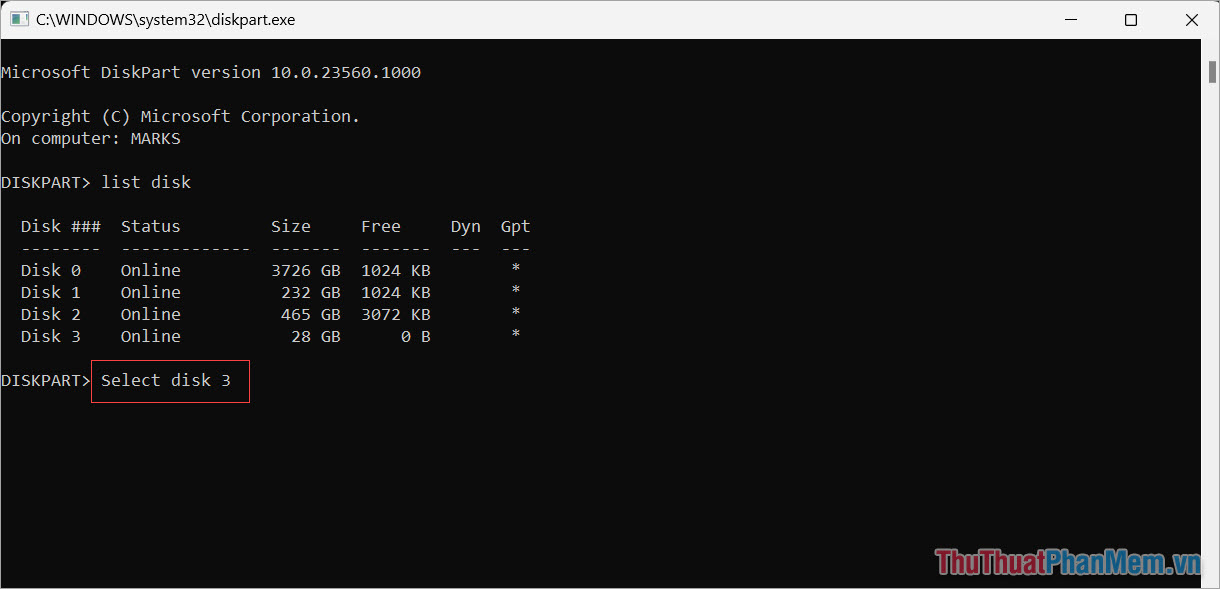
Step 5 : When successfully connecting the USB drive, execute the Clean → Enter command to clean the data in the USB.
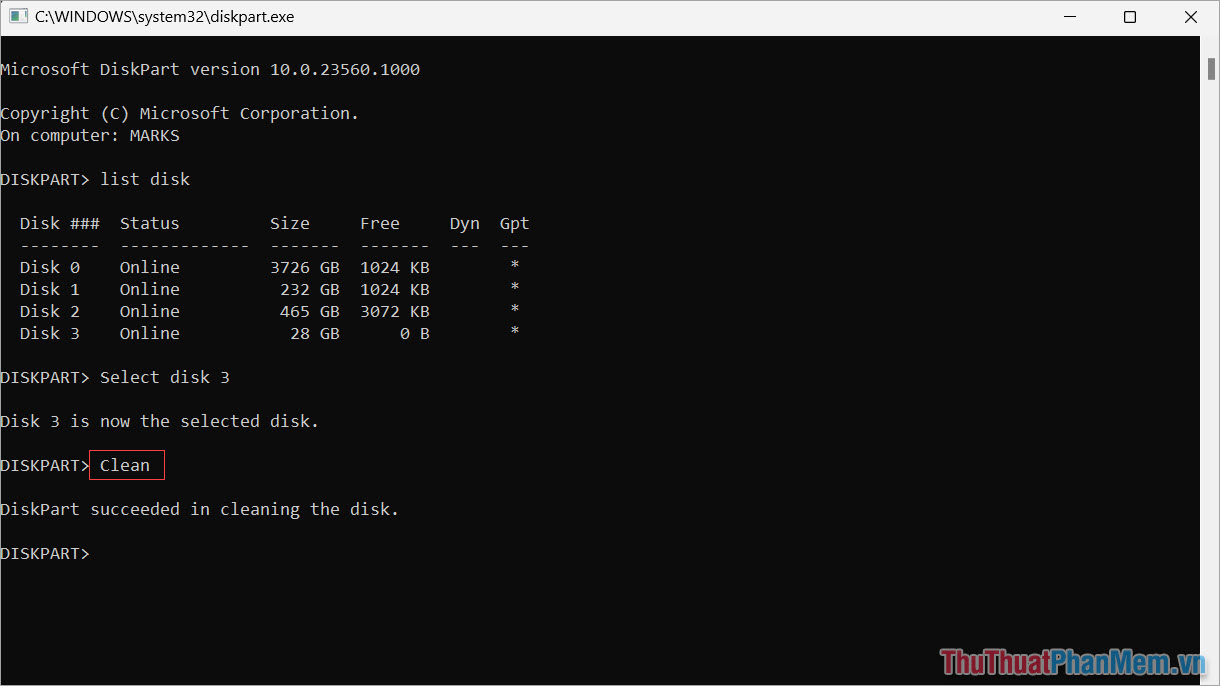
Step 6 : When the Clean command completes, use the command below to create a partition for the USB.
| Create partition primary → Enter |
Note : If any new windows are opened at this time, turn off all newly opened windows.
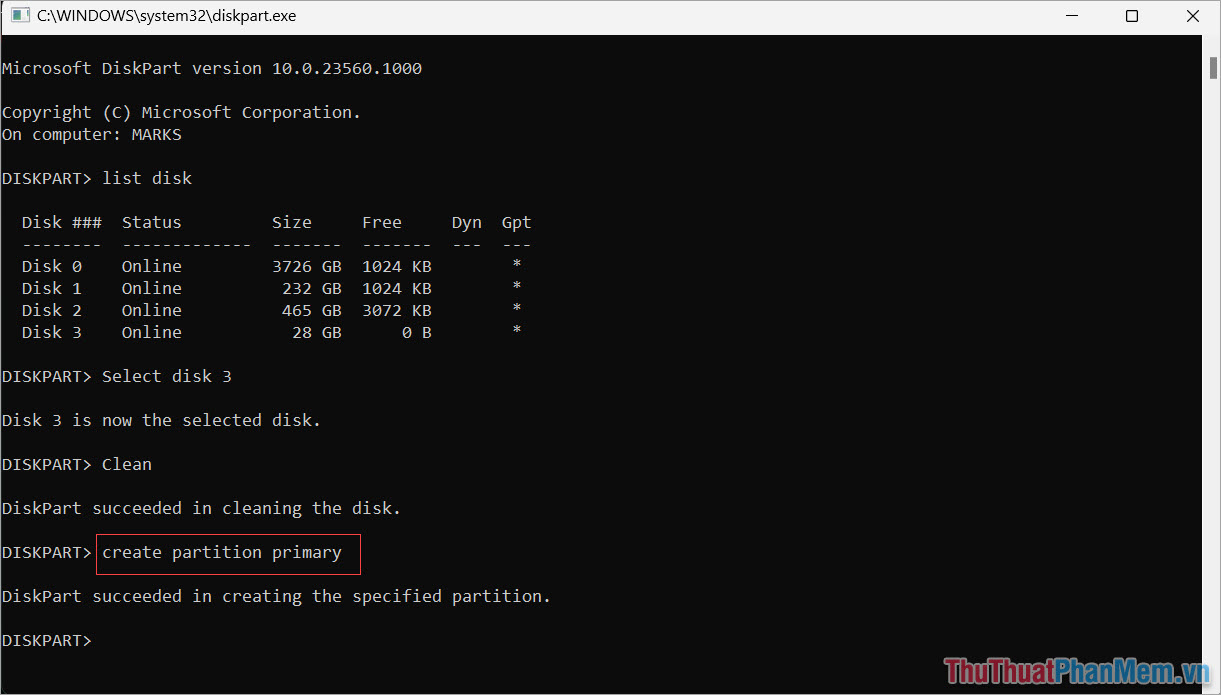
Step 7 : Next, enter the following command to format the USB drive on your computer.
| format fs=Format label=Quick drive name |
In there :
- Format : You can replace one of the following 3 formats: 'FAT32, 'exFAT', 'NTFS'. When replacing the format, remember to remove the '' sign.
- Drive name : Name the drive, you should not put accents to avoid errors during USB Formatting.
- Quick : Quick format mode, if you don't need quick format, you can remove 'Quick' in the command.
For example : In this case, TipsMake will use NTFS format, name the USB drive TipsMake and have Quick Format mode, the command will be as follows:
| format fs=NTFS label=TipsMake quick |
After entering the correct command, press Enter to run the command.
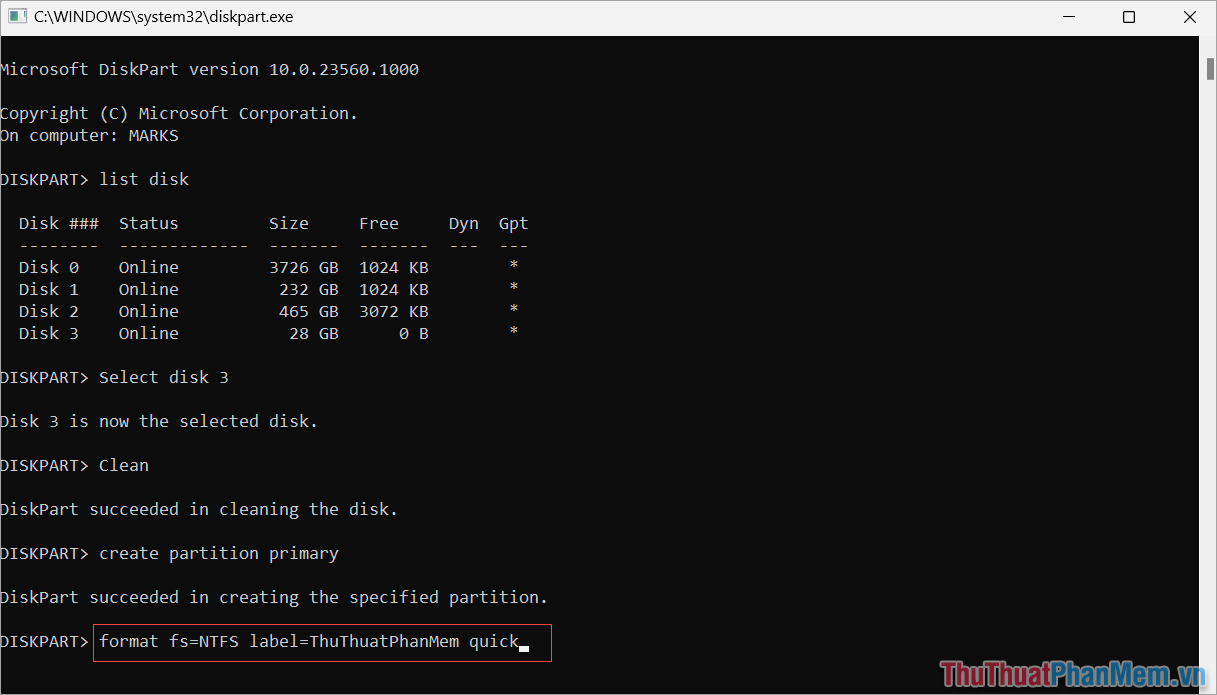
Step 8 : After the command completes, you have formatted the USB in Command Prompt. However, you should use the assign command to assign the USB drive a letter (eg: A:, D:, E:, F:.)
Note : If you use the assign command , by default the system will assign random characters. In case you want to attach specified characters, see the next step.
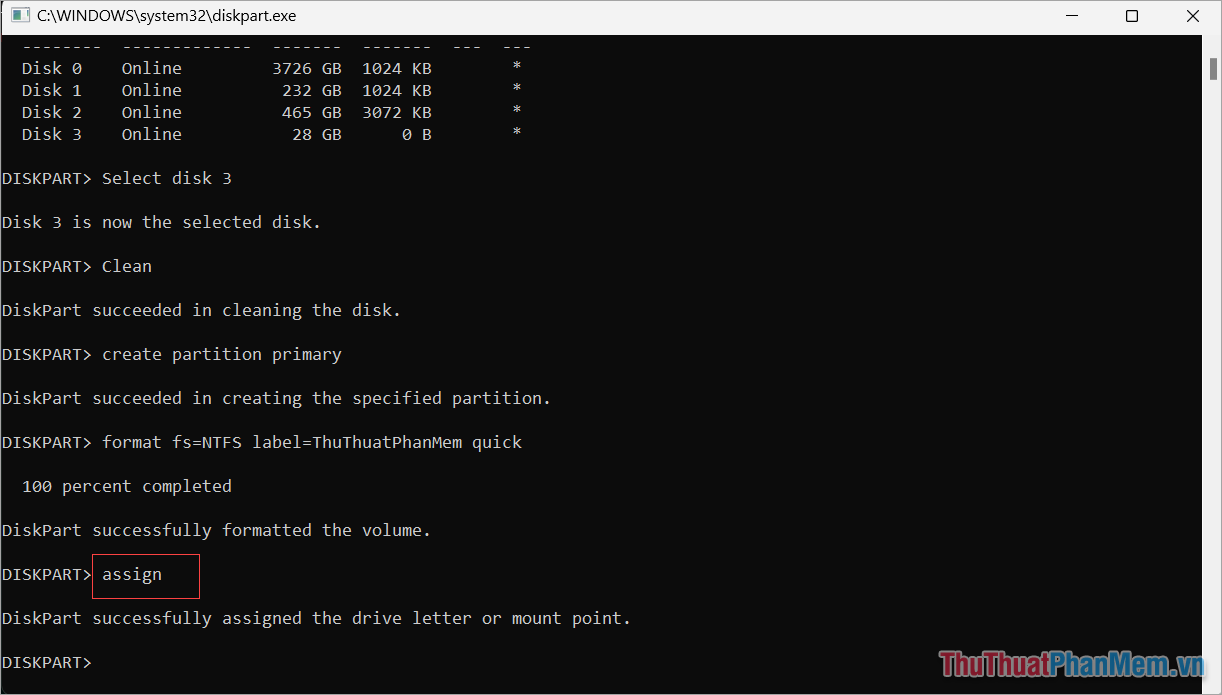
Step 9 : In case you want to attach a letter to the USB as required, execute the following command:
| assign letter=The letter you want to assign |
For example : TipsMake attaches the letter M: to the new USB drive. Format, the command is assign letter=M.
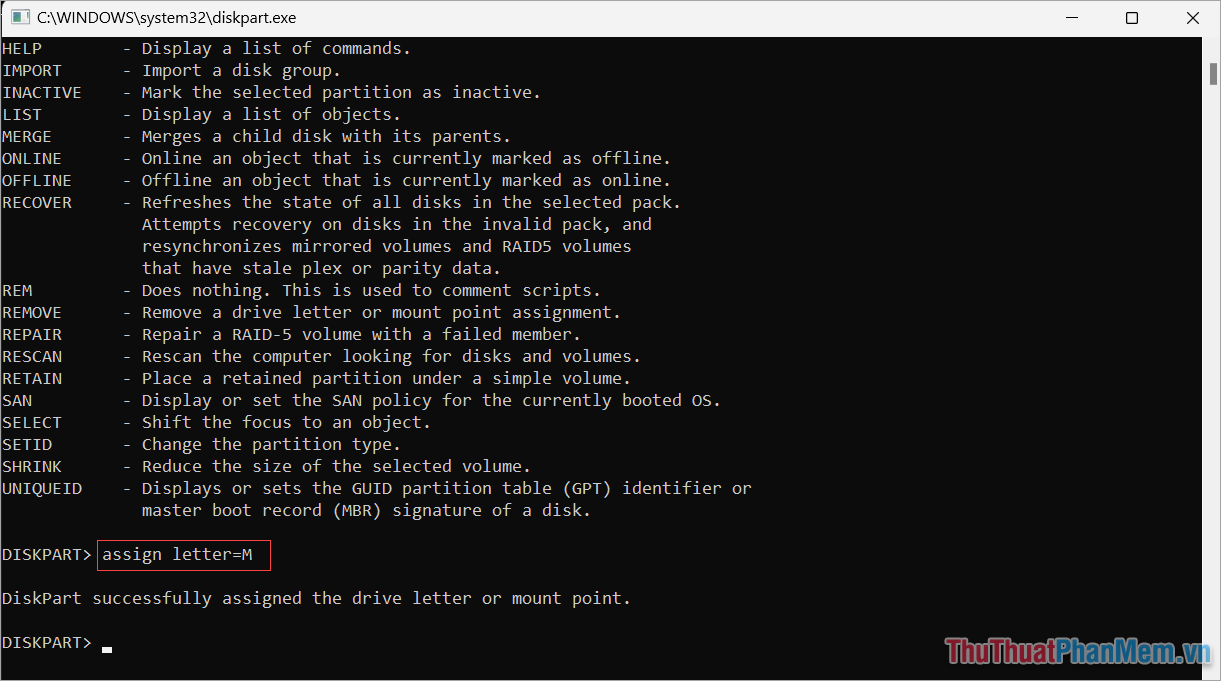
Step 10 : So, you have finished formatting the USB using CMD on the computer.
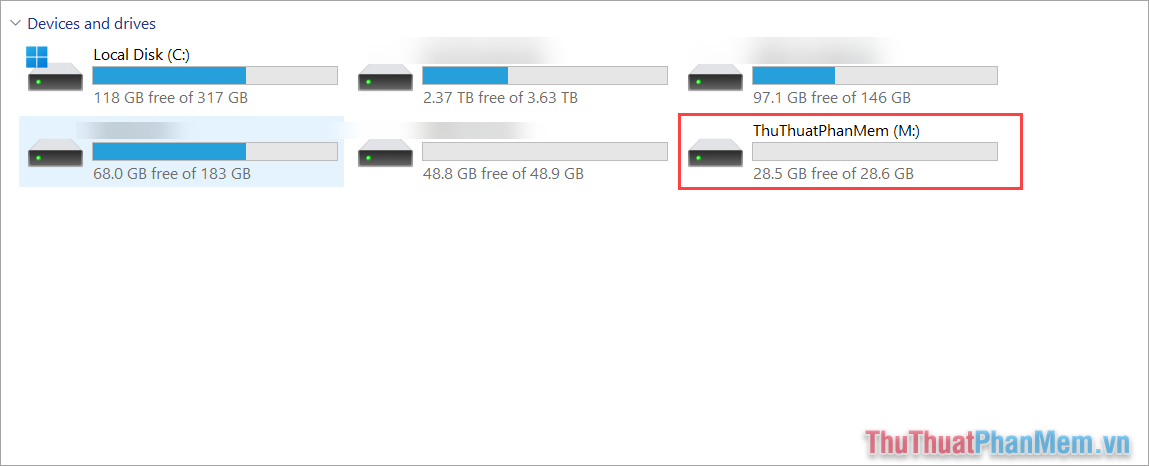
3. How to Format USB using CMD super fast
In addition to the detailed USB Format method as instructed above, you also have a super fast USB format method that takes less than 1 minute. Let's see specifically!
Step 1 : Open This PC to determine the letter name of the USB drive that needs to be formatted.
For example : In this case, the USB needs a Format with the character (M:).
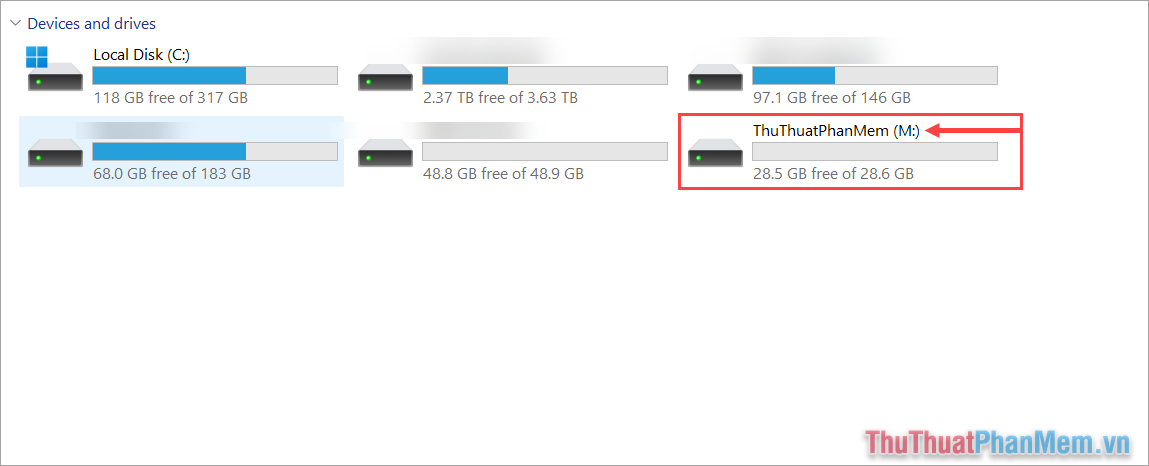
Step 2 : Open Start , enter CMD and select Run as administrator to launch CMD with admin rights.
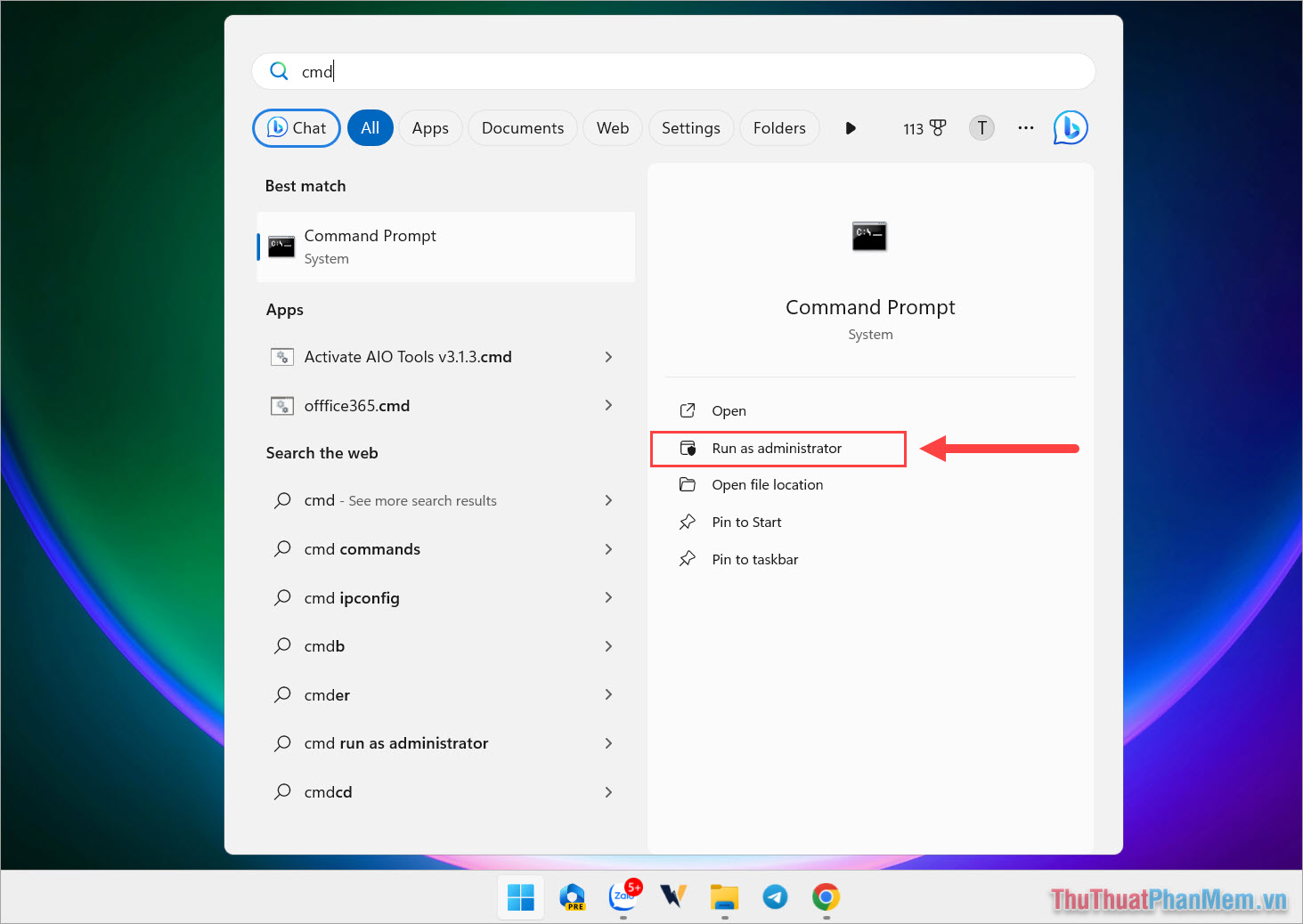
Step 3 : When the CMD window appears, execute the command below and press Enter .
| format VOLUME: /v:FLASHDRIVE-LABEL /fs:FILE-SYSTEM /q |
In there :
- VOLUME : Replace with the USB drive symbol name seen in Step 1/Part 3.
- FLASHDRIVE-LABEL : Replace with new drive name (written without accents)
- FILE-SYSTEM : Choose 1 of 3 available formats on the system FAT32, ExFAT, NTFS.
Example : In this case, the USB drive has the character name (M:) ; If you want to Format, use NTFS format and name it TipsMake, the complete command is: format M: /v:TipsMake /fs:NTFS /q
After completing the command in CMD, press Enter twice to confirm running the Format USB command in Command Prompt.
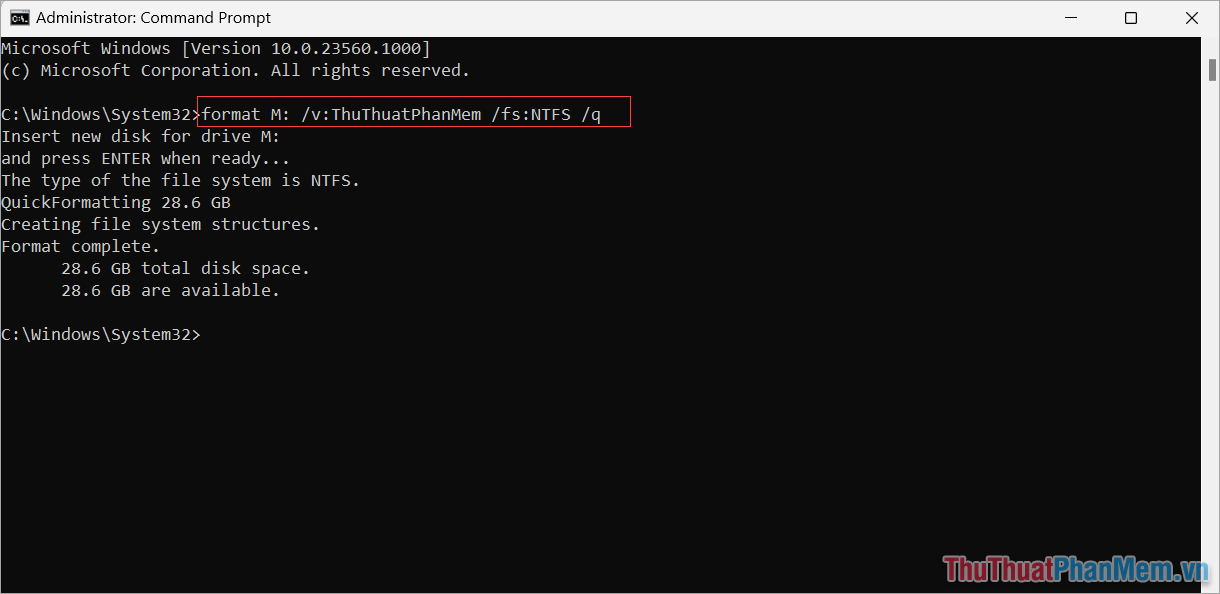
In this article, TipsMake has shared with you how to Format USB using CMD super simple and super fast. Have a nice day!
 How to turn off Windows Security (Windows Defender) easily
How to turn off Windows Security (Windows Defender) easily How to view Camera on computer simply and quickly
How to view Camera on computer simply and quickly Instructions on how to create shortcuts to open Windows applications
Instructions on how to create shortcuts to open Windows applications How to check RAM performance on Windows PC
How to check RAM performance on Windows PC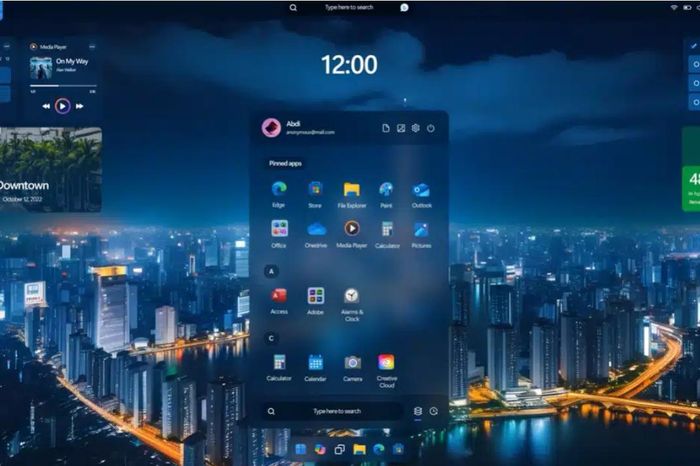 Fascinating idea about Windows 12
Fascinating idea about Windows 12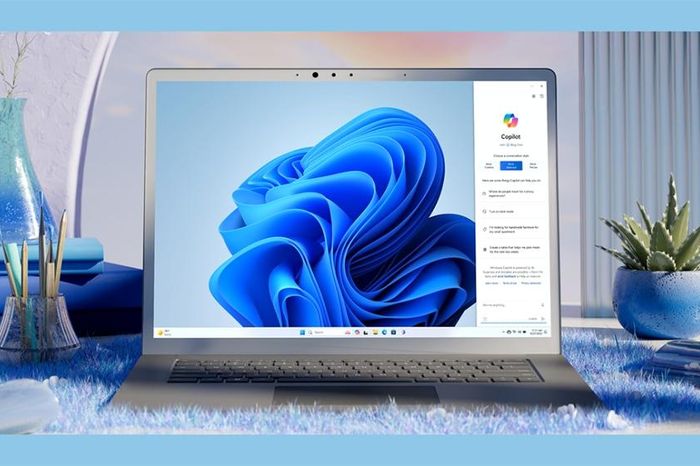 Microsoft disappointed many people again with Windows 11
Microsoft disappointed many people again with Windows 11